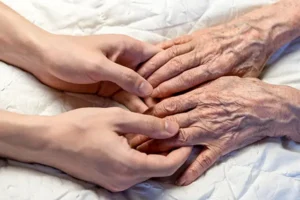
PROMO!
First order? Get 10% OFF with this code: 1storder
Written by

Copper peptides are small chains made of amino acids linked to copper. They are gaining attention for their possible health benefits and applications in skin care. Studies suggest they may aid in tissue repair, boost collagen production, improve skin’s texture and support skin rejuvenation across various skin types.
One well-known copper peptide, GHK-Cu, shows promising positive effects in scientific studies related to wound healing and regeneration. The activity of GHK supports essential biological processes such as the synthesis of collagen, which plays a key role in maintaining healthy skin and reducing the appearance of fine lines. Peptide Works provides high-quality copper peptides and other peptides worldwide for research purposes.
While these peptides are not intended for human use ongoing research continues to explore the regenerative effects of GHK, including its ability to help protect the skin from oxidative stress caused by free radicals, which can contribute to an uneven skin tone and the appearance of wrinkles over time.
This leads to a deeper question: how exactly do copper peptides support healing at the cellular level?
Explore GHK-Cu from Peptide Works, a copper-binding peptide that supports collagen production, skin regeneration, and accelerated wound healing in research studies.
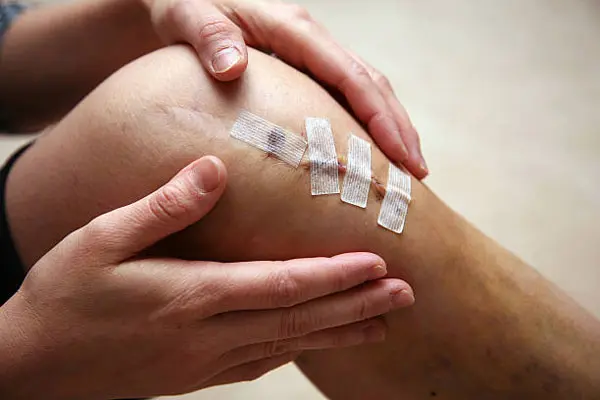
Copper peptides support wound healing by signaling cells, including skin fibroblasts, to produce collagen and new blood vessels. They promote tissue repair by guiding healthy cells into injured areas, reducing inflammation and contributing to wound contraction in research studies.
GHK-Cu is a widely studied copper peptide that helps wounds heal faster, with stronger skin and a more balanced skin tone. Another peptide, BPC-157, supports cell movement and tissue rebuilding in research studies. These processes create an environment for quicker healing and improved skin strength.
Research also explores how these peptides interact with molecules such as hyaluronic acid that play a role in tissue structure and hydration.
This healing power is closely tied to collagen production so how do these peptides influence that?
Discover BPC-157 from Peptide Works, a research peptide known for promoting tissue repair, angiogenesis, and cellular migration ideal for exploring regenerative healing.
GHK-Cu helps the body make more collagen by turning on skin cells called fibroblasts. These fibroblasts build collagen and elastin two important proteins that keep skin strong, stretchy, and young-looking.
Multiple studies highlight BPC-157, another peptide, known for helping tissue stay strong, heal faster, and recover from wounds. Together, these peptides support skin repair and growth, which can help reduce signs of aging naturally.
This natural process boosts skin texture, elasticity, firmness, and resilience without using any harsh chemicals or invasive treatments.
To fully appreciate this process, it’s important to understand the unsung heroes behind collagen production fibroblasts.
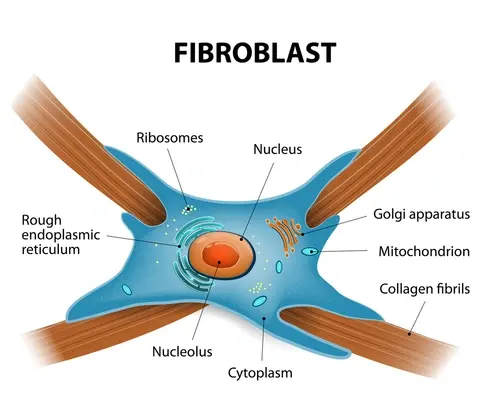
Fibroblasts are skin cells that create and maintain the extracellular matrix, giving skin strength and elasticity. Copper peptides like GHK-Cu help tissue repair by producing collagen, elastin, cytokines, and growth factors needed for skin regeneration.
When wounds occur, fibroblasts move to the injured area and produce matrix components that contract wounds and form new tissues. Peptides like GHK-Cu stimulate fibroblasts to increase collagen and growth factors.
BPC-157 supports fibroblast growth and healing signals. These processes are essential to effective tissue repair and healthy skin. Peptide Works provides high-quality peptides for research worldwide.
But the fibroblasts don’t work alone they operate within a complex environment called the extracellular matrix, which plays a critical role in skin aging and repair.
The extracellular matrix, or ECM, is crucial for skin aging and repair. It provides structure and controls cell behavior. Peptides like GHK-Cu, support the ECM by stimulating collagen and elastin production.
This helps maintain skin elasticity and strength. Other peptides such as BPC-157 contribute to skin repair and wound healing by promoting skin regeneration. The main ECM components include collagen, elastin, glycosaminoglycans, and proteoglycans.
These give skin its structure and resilience. Aging causes ECM degradation, reducing firmness and causing wrinkles. Together, these effects show the importance of copper peptides in maintaining healthy skin.
Since collagen is a key piece of this puzzle, it’s worth diving into how it directly impacts the skin.

Collagen production plays a crucial role in skin health and aging. Collagen provides structural support, maintaining skin firmness and elasticity. As we age, natural collagen production declines, leading to signs of aging such as wrinkles and sagging skin.
GHK-Cu, stimulate fibroblast activity, encouraging enhanced collagen synthesis. Additionally, BPC-157 supports tissue repair by promoting collagen production and aiding in wound healing.
These peptides help restore skin texture, improve elasticity, and reduce visible aging effects, supporting healthier and youthful skin.
Improved elasticity and firmness don’t just make skin look better they’re foundational to long-term skin strength. Here’s how copper peptides help with that, too.
Copper peptides help make more collagen and elastin. These proteins are important for the skin’s strength and stretch. They also make skin firmer by boosting fibroblast activity and helping it stay strong.
GHK-Cu and BPC-157 peptides support tissue repair and wound healing, which helps the skin renew itself. Clinical studies confirm that these peptides reduce wrinkles and fine lines, providing anti-aging benefits.
Ongoing research with copper peptides continues to reveal their potential to improve skin texture and vitality supporting long-term skin health and a more youthful appearance.
The field is evolving fast and what’s next for copper peptides is just as exciting as what’s already known.
Copper peptides show real promise in the future of skincare. New research highlights their ability to support skin repair and reduce signs of aging.
While they are still used mostly in labs, these peptides are on track to become key ingredients in smart, personalized skincare.
Peptide Works focuses on supplying high-quality peptides to researchers worldwide. As an online retailer, we make it easier for scientists to access what they need helping move the field forward with products that aim to keep skin healthier, firmer, and more resilient.
All products discussed are supplied for research purposes only and are not intended for human use.
[1] Pickart L, Margolina A. Regenerative and Protective Actions of the GHK-Cu Peptide in the Light of the New Gene Data. Int J Mol Sci. 2018 Jul 7;19(7):1987.
[2] Pickart L, Vasquez-Soltero JM, Margolina A. GHK Peptide as a Natural Modulator of Multiple Cellular Pathways in Skin Regeneration. Biomed Res Int. 2015;2015:648108.
[3] Seiwerth S, Milavic M, Vukojevic J, Gojkovic S, et al. Stable Gastric Pentadecapeptide BPC 157 and Wound Healing. Front Pharmacol. 2021 Jun 29;12:627533.
[4] Huang T, Zhang K, Sun L, Xue X, et al. Body protective compound-157 enhances alkali-burn wound healing in vivo and promotes proliferation, migration, and angiogenesis in vitro. Drug Des Devel Ther. 2015 Apr 30;9:2485-99.
ALL CONTENT AND PRODUCT INFORMATION AVAILABLE ON THIS WEBSITE IS FOR EDUCATIONAL PURPOSES ONLY.
DISCLAIMER: These products are intended solely as a research chemical only. This classification allows for their use only for research development and laboratory studies. The information available on our Peptide Works website: https://peptide-works.com/ is provided for educational purposes only. These products are not for human or animal use or consumption in any manner. Handling of these products should be limited to suitably qualified professionals. They are not to be classified as a drug, food, cosmetic, or medicinal product and must not be mislabelled or used as such.
Peptide Works
Related Articles
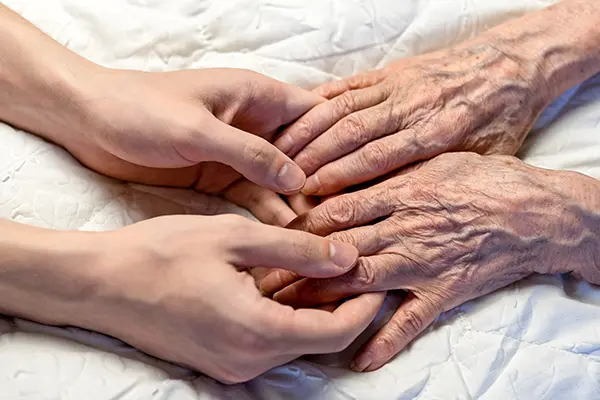
Cartalax Benefits for Aging: Supporting Joint and Tissue Health Naturally
Aging affects how joints move and how tissues handle daily stress. Over time, movement may feel less smooth, and tissues
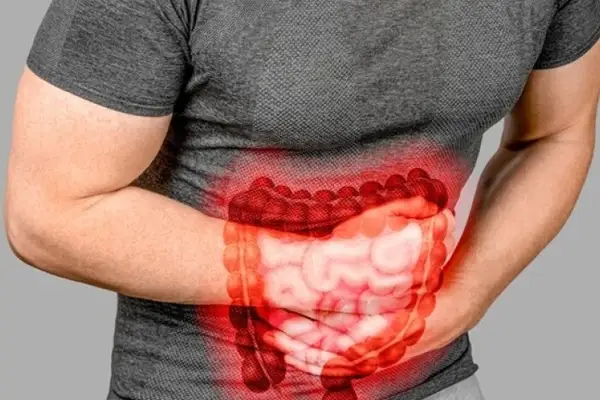
Can VIP Peptide help with Gastrointestinal Motility?
Research on gastrointestinal motility has gained attention because it plays a central role in digestion and overall gut function. When
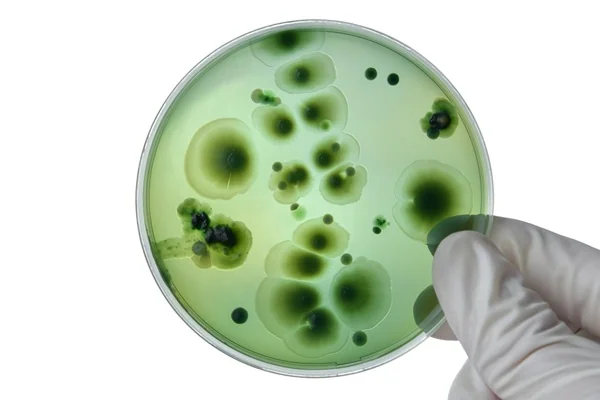
Fighting Fungal Infections with TA1 Peptide
Fungal infections can be stubborn, often resisting common treatments and weakening the body’s defenses. In recent years, researchers have been